A fascinating exploration of the legends accredited to the mysterious religious and military order of the Knights Templar. The Order of the Templar, created after the first Crusade and disbanded by the King of France in 1307, gave birth to fabulous legends which persist to this day. Despite in-depth research, many enigmas still surround this mythical order and its legends - not least whether mysterious discoveries at Gisors and Oak Island can really hold the fabled Templar treasures. Now, this insightful documentary relives an epic adventure based on facts, places, puzzles and legends that feed faiths and have fascinated generations.
Related Movies

The Village (2012)
Far away from any other urban centers, Itapuã is a small community with the characteristics and rituals of everyday life. The location, which sheltered 1,454 people and has more than 70 years of existence remains with only 35 residents all over the age of 60. No one likes to remember what the place was in the past, even though for many the memory is etched on their bodies.
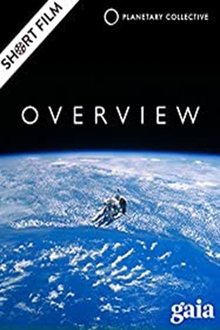
Overview (2012)
Astronauts who have seen the Earth from space have often described the 'Overview Effect', an experience that has transformed their perspective of the planet and mankind's place upon it, and enabled them to perceive it as our shared home, without boundaries between nations or species. 'Overview' is a short film that explores this perspective through interviews with astronauts who have experienced the Overview Effect. The film also features insights from commentators and thinkers on the wider implications and importance of this understanding for humanity as a whole, and especially its relevance to how we meet the tremendous challenges facing our planet at this time.
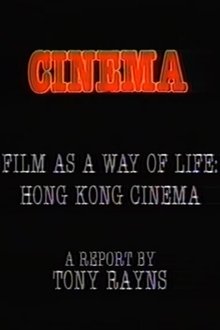
Visions Cinema: Film as a Way of Life: Hong Kong Cinema - A Report by Tony Rayns (1983)
Examines the early 1980s Hong Kong filmmaking community. Tony Rayns interviews some of the new generation of filmmakers and figures from the wider film culture.
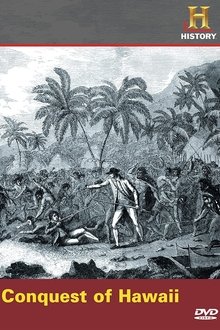
Conquest of Hawaii (2003)
History Channel documentary which chronicles the history of Hawai'i and the rarely told story of the overthrow of the Hawaiian monarchy by the American government.
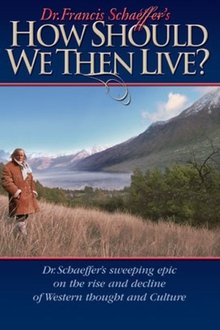
How Should We Then Live? (1977)
Dr. Francis Schaeffer's spectacular series on the rise and decline of Western culture from a Christian perspective.
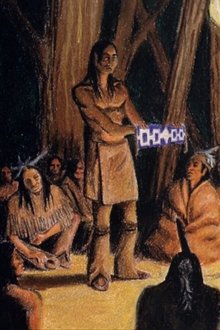
Who Were the Ones? (1972)
This short film was created by a group of Indigenous filmmakers at the NFB in 1972 and is essentially a song by Willie Dunn sung by Bob Charlie and illustrated by John Fadden: "Who were the ones who bid you welcome and took you by the hand, inviting you here by our campfires, as brothers we might stand?" The song expresses bitter memories of the past, of trust repaid by treachery, and of friendship debased by exploitation upon the arrival of European colonists.

The Typewriter (In the 21st Century) (2012)
30+ interviews in 10 U.S. states with authors, collectors, journalists, professors, bloggers, students, artists, inventors and repairmen (and women) who meet up for ‘Type-In’ gatherings to both celebrate and use their decidedly lo-tech typewriters in a plugged-in world.
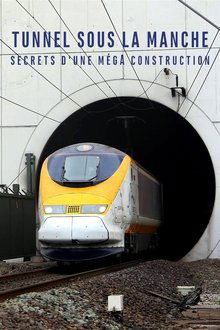
Building the Channel Tunnel (2019)
The Channel Tunnel linking Britain with France is one of the seven wonders of the modern world but what did it take to build the longest undersea tunnel ever constructed? We hear from the men and women, who built this engineering marvel. Massive tunnel boring machines gnawed their way through rock and chalk, digging not one tunnel but three; two rail tunnels and a service tunnel. This was a project that would be privately financed; not a penny of public money would be spent on the tunnel. Business would have to put up all the money and take all the risks. This was also a project that was blighted by flood, fire, tragic loss of life and financial bust ups. Today, it stands as an engineering triumph and a testament to what can be achieved when two nations, Britain and France put aside their historic differences and work together.
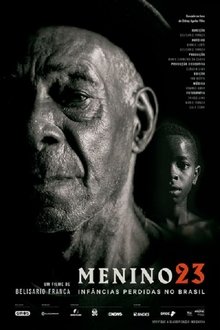
Boy 23: The Forgotten Boys of Brazil (2016)
The film accompanies the investigation of the historian Sidney Aguilar after the discovery of bricks marked with Nazi swastikas in the interior of São Paulo. They then discover a horrifying fact that during the 1930s, fifty black and mullato boys were taken from an orphanage in Rio de Janeiro to the farm where the bricks were found. There they were identified by numbers and were submitted to slave labour by a family that was part of the political and economic elite of the country and who did not hide their Nazi sympathizing ideals.
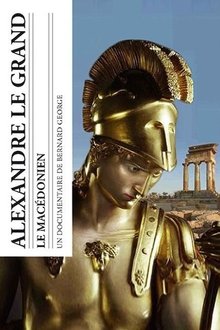
Alexander the Great: The Macedonian (2011)
A close look at Alexander the Great - from Macedonia to India. Alexander the Great has always enjoyed a unique status in history. To the Greeks and Romans, he was a hero, to the Arabs, he was a prophet, to Westerners, he is a myth. Alexander the Great Hellenized the ancient world and spread Greek civilisation single-handedly throughout, as far as the borders of India, by relentlessly pursuing his sworn enemy Darius the Great, King of Persia. But what remains today of the "real" Alexander? Of his life and environment? Through the many depictions of the hero and the archaeological traces of his triumphant conquest, this film portrays the legendary figure, who has always been, and continues to be, a great source of inspiration, even for artists of today.
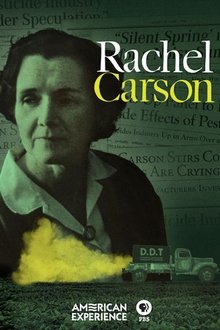
Rachel Carson (2017)
An intimate portrait of the woman whose groundbreaking books revolutionized our relationship to the natural world. When 'Silent Spring' was published in September 1962 it became an instant bestseller and would go on to spark dramatic changes in the way the government regulated pesticides.

Venus Uncovered: Ancient Goddess of Love (2017)
In 1914, the suffragette Mary Richardson attacked the Rokeby Venus at the National Gallery in London. But why did this painting fire such outrage? Professor Bettany Hughes embarks on a voyage of discovery to reveal the truth behind the Venus depicted in the painting, proving that this mythological figure is so much more than just an excuse for sensual nudity and chocolate-box romance. Because Venus Uncovered is the remarkable story of one of antiquity's most potent forces. And more than that - hers is the story of human desire, and how desire transforms who we are and how we behave.
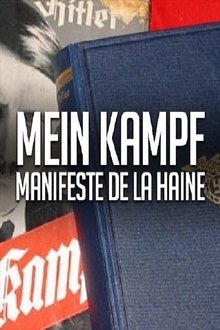
Mein Kampf - Das gefährliche Buch (2015)
Documentary tells the story of the book and shows what impact its racist and ultra-nationalist content has on us today, where arson attacks, right-wing riots and hate comments against asylum seekers are the order of the day.

Fort Knox: Secrets Revealed (2007)
The U.S. Bullion Depository, better known as Fort Knox, is home of the United States Army and one of the world's most top secret fortresses. Hidden deep inside the vault is an estimated $73 billion dollars in gold. Almost all information about it is classified. Through interviews with eyewitnesses, rare photos and rarely seen films, we will construct a picture of what the building might look like. Hear testimony of those journalists and congressmen who were among the select few invited inside in 1974. Discover the history and secrets behind the Army's tank warfare and the classified military technologies it will use to fight the wars of the future.

Spitfire: The Birth of a Legend (2006)
‘Spitfire— Birth of a Legend‘ tells the story of the Spitfire from a radical design on the drawing board to the fighter aircraft that became the symbol of Britain’s determination to fight on to victory. It celebrates the history of this acclaimed aircraft, the men who designed and built it, and those who flew and fought in it. The story, along with dramatic archive and colour film of aerial combat, graphically illustrates the appeal and fascination the Spitfire has maintained since it faced and fought the fighter and bomber formations of the Luftwaffe.
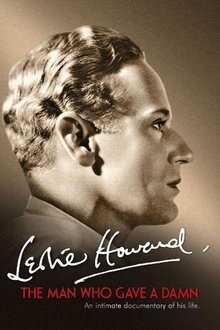
Leslie Howard: The Man Who Gave a Damn (2015)
Documentary looking at the life and career of 1930s film star Leslie Howard. It features exclusive home movie footage, including footage from the Gone with the Wind set. The film includes extensive interviews with Howard's daughter, Leslie Ruth "Doodie" Howard, and contributions from friends and colleagues.
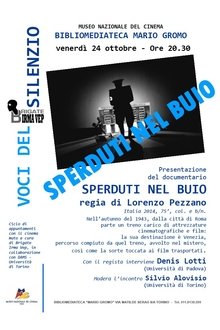
Sperduti nel buio (2014)
Documentary about the lost 1914 film "Sperduti nel buio". Film historian Denis Lotto journeys across Europe following the trail of the lost movie.
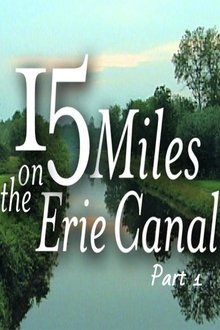
15 Miles On The Erie Canal (Part 1) (2006)
The Erie Canal was an engineering marvel in its time and remains so today. This documentary travels from Palmyra to the Genesee River, stopping along the way to visit the people and places that make the canal so special. Canal historian Thomas Grasso offers insight into the canal’s past while the Golden Eagle String Band provides the music track.
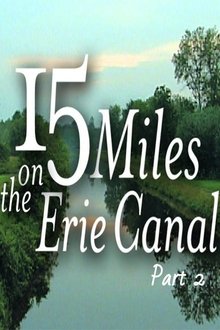
15 Miles On The Erie Canal (Part 2) (2006)
Highlighting the canal’s quiet beauty and fascinating people, Part 2 travels from the Genesee Waterways to Spencerport, Brockport, Holley, and Lockport– taking to the trails and the water, on everything from the historic Sam Patch tour boat to Luxury cabin cruisers. Dr. William Hullfish, a SUNY Brockport associate professor, musician and the expert in Erie Canal Songs.
